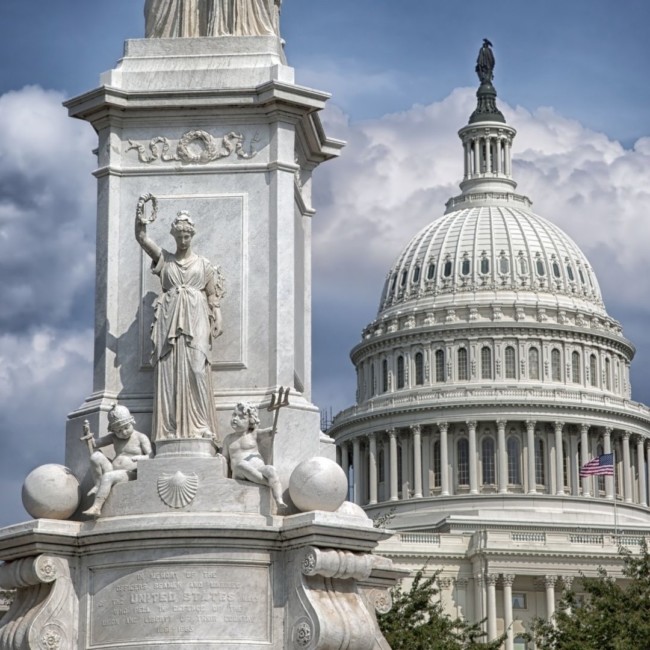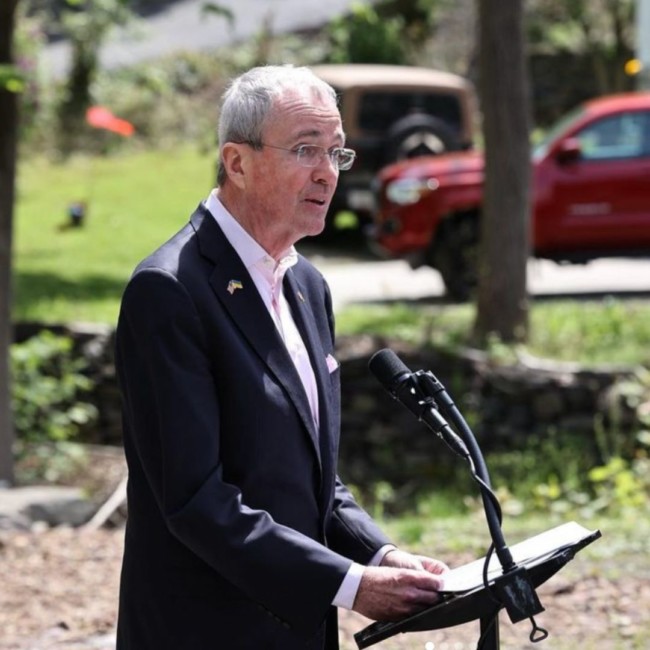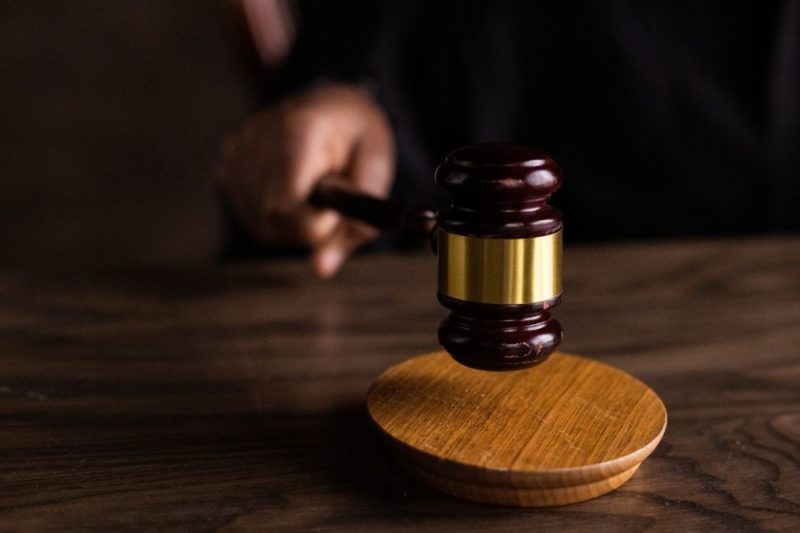On Monday, May 2nd, 2022, a leaked draft of the opinion for a 2022 Supreme Court case, Dobbs v. Jackson Women’s Health Organization, was published in Politico. The text included language that would overturn the 1973 decision of Roe v. Wade, the landmark law governing abortion in the US. Pundits, scholars, and court-watchers have quickly taken to blogs, websites, and other media to explain exactly what the ruling would mean for Americans. Through the lens of states’ rights, women’s rights, privacy laws, and their intersection with the US Constitution, there was plenty to sort through. Now, with the overturning of Roe v. Wade, here’s what this means for New Jersey residents.
A Brief Summary
In the simplest terms, abortions are still legal in New Jersey — it’s just no longer guaranteed by the U.S. Constitution.
The question posed by the original case was, “Does the Constitution recognize a woman’s right to terminate her pregnancy by abortion?” A 7-2 majority held that the Due Process Clause of the Fourteenth Amendment protected the woman’s right to choose, up until the second and third trimesters. The Court went on to say that during the second trimester, the state may impose regulations that are ‘reasonably related’ to maternal health. During the third trimester, a state may prohibit abortions entirely except when necessary to save the life of the mother.
A quick refresher from your long-ago civics class: the federal law governing a topic is typically the ‘floor’ and states may build upon that to create their own laws. Another way to look at it is that the federal law is a backstop against whatever a state can come up with. Other cases that explore this concept include South Dakota vs. Dole (1987), which discussed the constitutionality of restricting funding to states with an under-21 drinking age (at the time, many states had different ages for a minimum drinking age); and several cases involving the Constitutional rights of students, such as Tinker vs. Des Moines (1969), which held that neither students nor teachers “shed their constitutional rights to freedom of speech or expression at the schoolhouse gate.”

The effect of the Roe ruling has been a patchwork of abortion laws promulgated by each state. And, since laws change over time and this is a hot topic, it can be confusing to keep up with what’s happening in your home state – much less the entire country. Patients in a state with more restrictive abortion laws may need to travel to a different state to access the care they need.
In 1992, one of those state laws was examined by the Court in Planned Parenthood vs. Casey. The case explored some of the limitations placed on laws permitting abortions: “Can a state require women who want an abortion to obtain informed consent, wait 24 hours, if married, notify their husbands, and, if minors, obtain parental consent, without violating their right to abortion as guaranteed by Roe v. Wade?” A 5-4 majority ruled in favor of Planned Parenthood and created a new standard by which to examine abortion laws. The new Casey standard asks whether a state abortion law creates an undue burden for the patient seeking an abortion.
Read More: 21 Essex County News Stories You Missed This Week
Both Casey and Roe are considered the two bookends in abortion regulation. The timing of the two is of interest as well; Roe set the standard in 1973, and Casey revisited it in 1992, after enough states had crafted their own regulations using the Roe framework. And now, with Dobbs v. Jackson Women’s Health Organization, the Court will again examine its own standards for permitting abortion as a Constitutional right. Since the underlying questions of these cases often have to do with privacy, a state’s right to regulate a topic, and other similar Constitutional questions, the outcome of Dobbs could have a wide-ranging impact on other cases with similar rationales in their holdings. For example, 1965’s Griswold vs. Connecticut, which held that the Constitution protects the privacy of married couples against state restrictions on contraception. The privacy interests of a married couple outweigh the state’s interest in regulating access to contraception.
The Ruling
The information released was a draft at the time, and the ruling on the case, Dobbs v. Jackson Women’s Health Organization, as of June 24, 2022, Roe v. Wade has been reversed and remanded, 6-3, in an opinion by Justice Alito on June 24, 2022. Justices Thomas and Kavanaugh filed concurring opinions. Chief Justice Roberts filed an opinion concurring in the judgment. Justices Breyer, Sotomayor, and Kagan filed a dissenting opinion, according to Scotusblog.
Previously, the leaked draft was written by Associate Justice Samuel Alito in February 2022, and four other conservative Justices had previously indicated their support of Justice Alito’s position in December 2021.
Since many states have written laws in accordance with Roe’s provisions, many of those laws are now going to change as Roe changes. There are 13 states with ‘trigger’ laws in place, meaning that any weakening or invalidation of Roe will effectively weaken or invalidate the state’s provisions. In some states, abortion will be banned outright, and others would permit abortions only in the most restricted circumstances.
Several other states are in the position to either further restrict abortion, should Roe be repealed, or effectively enforce previously unenforceable bans on abortion.
See More: This Clifton Non-Profit Serves the Community Through Agriculture + Education
In New Jersey
New Jersey joins a handful of other states that have state laws that expressly permit abortion. In January 2022, New Jersey Governor Phil Murphy signed a law called the Freedom of Reproductive Choice Act, which expands access to contraception and protects the right to an abortion in the state. “In New Jersey, we trust each individual person to make their reproductive choices for themselves,” said Governor Murphy at the time. “With Roe v. Wade under attack, today’s historic legislation makes clear that New Jersey’s position in supporting the right to reproductive choice remains protected. Together, with expanding contraception coverage, these two pieces of legislation serve to meaningfully and tangibly increase access to reproductive health care, and ensure that New Jersey residents are now, and will remain, in control of their reproductive choices.”

(Photo credit: @govmurphy)
Governor Murphy released a statement on Twitter about the overturning on June 24th:
In New Jersey, women will always have full autonomy over their own bodies and the right to make their own medical decisions. pic.twitter.com/NsnbjzSjI2
— Governor Phil Murphy (@GovMurphy) June 24, 2022
New Jersey’s express protection of abortion access means that women from other states could likely choose to travel to the Garden State to receive treatment. Additionally, in December 2021, the State Board of Medical Examiners, the governing body of medical licensure in the state, changed its rules to expand the type of provider who can perform an abortion.
It now includes Advanced Practice Nurses, Physician Assistants, Certified Nurse-Midwives, and Certified Midwives. The new rules also updated the language governing abortion treatment “to integrate reproductive care within the generally applicable rules designed to ensure the safety of patients who undergo surgery or special procedures in an office setting.”
According to the press release, these changes mean that “by clearing the path for certain healthcare providers other than physicians to perform a termination of pregnancy, the rule changes significantly expand access to reproductive care in New Jersey. Currently, there are approximately 11,956 Advanced Practice Nurses, 4,495 Physician Assistants, 393 Certified Nurse Midwives, and 18 Certified Midwives in the State who could become authorized to perform the procedure.”
Most insurance companies in New Jersey do pay for abortion, but it is not required. Clinics are preparing to expand hours and staff to handle the anticipated demand.
















